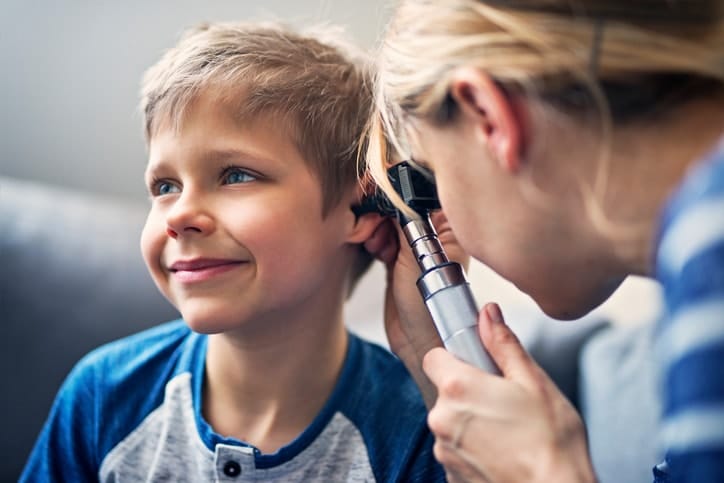
Hearing loss is a condition that is typically associated with the aging process, but children can also have it. Detecting hearing loss in children is important in order to lower the risk of speech and language delays, as well as problems with social development. Learn more about how often this condition occurs in children and why early intervention for it is crucial.
Statistics on Hearing Loss in Children
Hearing loss can be present in newborns, which is why hearing screenings are important. In general, this condition is diagnosed when children are between three and 17 years of age. According to the Centers for Disease Control and Prevention, around 5 out of 1,000 children have some degree of hearing loss. The number of children with hearing loss has increased, mainly due to being in noisy environments. An estimated 12.5 percent of children between six and 19 years old have permanent damage to their hearing from too much exposure to loud noise.
Causes of Hearing Loss in Children
Children can develop hearing loss for different reasons, including the following:
- Congenital hearing loss: Some children have congenital hearing loss, which is a condition that is present at birth. Some cases of congenital hearing loss have genetic causes, while others are caused by birth complications, nervous system disorders, premature birth or other non-genetic factors.
- Genetic hearing loss: Genetic factors are responsible for roughly half of all hearing loss that affects children. These factors include Down syndrome and other genetic syndromes, autosomal dominant hearing loss and autosomal recessive hearing loss.
- Acquired hearing loss: This hearing loss develops after birth and result from injuries, infections or other causes. Some of the causes of this type of hearing loss include eardrum perforation, meningitis and other infections, serious head trauma, long-term exposure to loud noises and untreated ear infections.
- Transient or temporary hearing loss: This type of hearing loss can occur when children have a middle ear infection. While it generally clears up, frequent infections can lead to permanent damage.
Symptoms of Hearing Loss in Children
Hearing loss can affect children in different ways. Common signs of hearing loss in infants include the following:
- Does not respond to hearing their name or other sounds, such as turning their head in that direction, after they are six months old
- Only seems to hear some sounds
- Has not said any single words by the time they are 1 year old
- Does not react to loud sounds
Common signs of hearing loss in children include the following:
- Has speech delays
- Frequently asks to have others repeat what they have said
- Is unable to speak clearly
- Has trouble following directions
- Has to increase the volume on the TV or computer in order to hear
When to See a Doctor for a Hearing Screening
Infants typically have a hearing screening by the time they are 1 month old. In some cases, this screening is done at the hospital. Infants who do not pass these hearing screenings should have a hearing test done by the time they are 3 months old. Children typically have a hearing test before starting school. Those who do not pass this screening should undergo further evaluation.
Even with hearing screenings, it is important to bring your child to the doctor for testing whenever you have a concern about their hearing. Routine screenings are only done at certain times. Having a screening done for any hearing concerns you have about your child helps ensure that hearing loss is detected early, so that treatment can begin.
Treatments for Hearing Loss in Children
There are different kinds of treatments available for hearing loss in children. The types that are needed depend on the child’s age and how severe hearing loss is. Some of the treatments available for hearing loss include the following:
- Hearing aids: These devices make it possible for children to hear more clearly. There are many different kinds of hearing aids available for children, such as those that fit behind the ear and those that go inside the ear canal.
- Cochlear implants: Children who are unable to wear hearing aids can benefit from having cochlear implants. These devices, which are placed in the inner ear, use electrical stimulation on the auditory nerve.
- Speech therapy: This type of treatment helps children who have had speech delays and other speech problems due to hearing loss.
- Assistive listening devices: These devices, such as a microphone worn by a teacher, help ensure that children are able to hear clearly in noisier settings, such as classrooms.
If you need more information on hearing loss in children, please contact New York ENT for an appointment. We can evaluate your child’s hearing and provide hearing loss treatment if needed.



